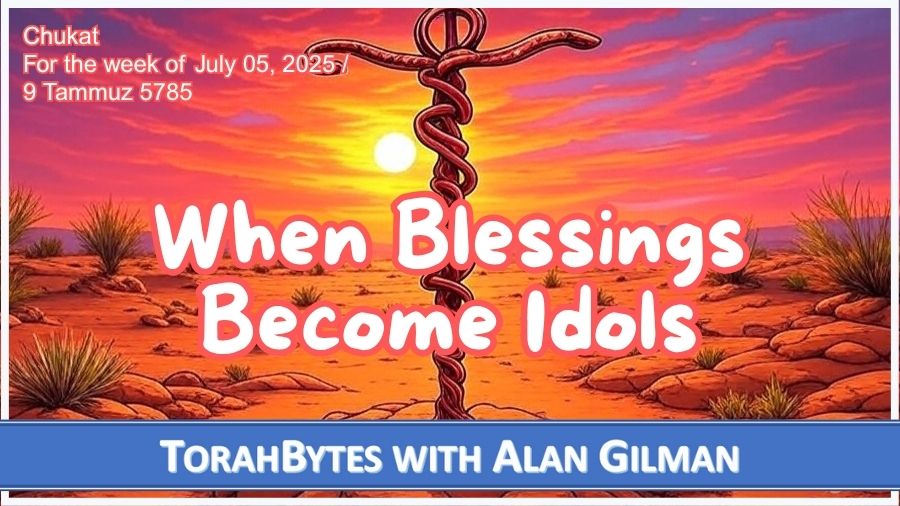
For the week of August 2, 2025 / 8 Av 5785
D’varim/Shabbat Chazon
Torah: D’varim/Deuteronomy 1:1 – 3:22
Haftarah: Isaiah 1:1-27
Ah, sinful nation, a people laden with iniquity… (Isaiah 1:4)
Does reading the Bible ever trouble you? If it doesn’t, you may not actually be reading it. From Adam and Eve’s disobedience to ongoing violence and betrayal, much within its pages is unsettling. Then there is the challenge of its impossible moral standards, but we’ll leave that subject for another time. What troubles me most right now is the perceived anti-Jewishness of the New Covenant Writings.
This is a vast topic, and I plan to write a book on it one day. For now, I want to address one specific point. But first, let me be clear, I firmly believe the New Covenant Writings (my preferred term for the New Testament) are not antisemitic. On the contrary, they unequivocally affirm God’s unconditional and eternal faithfulness to the Jewish people. This conviction is precisely what leads to what troubles me.
Despite my certainty that the New Covenant Writings affirm God’s everlasting love for the Jewish people, I feel compelled to constantly explain why instances of harsh criticism of Israel within its pages don’t undermine this love. But what truly troubles me, even more than that, is this: Why do similar or even harsher criticisms of Israel in the Hebrew Scriptures (what you might call the Old Testament) not trouble me in the same way?
The Hebrew Scriptures are full of critiques of Israel, including a most intense passage from Isaiah (1:1–27), specially chosen for the Shabbat before Tisha B’Av (the ninth day of the month Av; this year: August 3, 2025), a day of mourning for a long list of tragic events in Israel’s history, including the destruction of both Temples. Isaiah confronts Israel with words such as:
Ah, sinful nation, a people laden with iniquity, offspring of evildoers, children who deal corruptly! They have forsaken the Lord, they have despised the Holy One of Israel, they are utterly estranged (Isaiah 1:4).
A remarkable aspect of the Hebrew Scriptures is their self-critique. Instead of portraying main characters or the nation in a purely positive light, their failings are highlighted in graphic detail. Think of Moses’ premeditated murder or David’s adultery. Much of the time, Israel falls short. The Scriptural narrator and the prophets repeatedly emphasize Israel’s wrongs. Yet, this doesn’t deeply trouble me. Why? Because the Hebrew Scriptures frame these failings within the context of God’s unfailing love for his covenant people. God’s unshakable faithfulness alleviates significant concern over such critiques.
Come now, let us reason together, says the LORD: though your sins are like scarlet, they shall be as white as snow; though they are red like crimson, they shall become like wool (Isaiah 1:18)
So, why do I feel differently about similar passages in the New Covenant Writings? It’s partly because I know better. I know there’s no fundamental difference between the critiques in both testaments. And this is apart from how some New Covenant passages have been historically misinterpreted as hostile toward the Jewish people. They may be references to “Jews” in the Gospel and Acts, which is about certain Jewish leaders in a particular time and place, or how the statement, “His blood be on us and on our children!” (Matthew 25:27) has been wrongly used to villainize all Jewish people for all time for the miguided charge of deicide, the murder of God. Don’t Bible readers know what Messiah’s blood is actually about?
Yet, I am aware that just like the Hebrew Scriptures, the New Covenant Writings contain some pretty harsh words for Israel and a significant number of its leaders of that day. Why do these passages bother me, then? It’s because I cannot escape the awareness of how many Christians read them. They confuse critique with rejection; loving concern with hatred. This misunderstanding is then often projected back onto the Hebrew Scriptures, mischaracterizing both Jewish people and God himself.
I am troubled, but not in despair, for I know that God will eventually make His unfailing love for the Jewish people undeniably clear. But this needn’t wait until some grand future event. It can start now with you, once you allow yourself to be embraced by it, as was the great New Covenant emissary Paul. He writes:
I tell the truth in Messiah—I do not lie, my conscience assuring me in the Ruach ha-Kodesh (the Holy Spirit)— that my sorrow is great and the anguish in my heart unending. For I would pray that I myself were cursed, banished from Messiah for the sake of my people—my own flesh and blood, who are Israelites. To them belong the adoption and the glory and the covenants and the giving of the Torah and the Temple service and the promises. To them belong the patriarchs—and from them, according to the flesh, the Messiah, who is over all, God, blessed forever. Amen (Romans 9:1–5; Tree of Life Version).
Scriptures taken from the English Standard Version unless otherwise indicated


